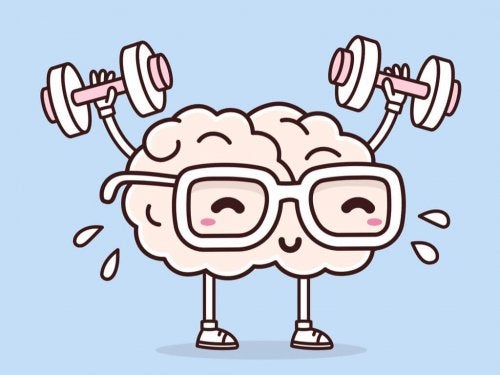We heard a lot about the benefits of physical activity for the body, but did you know that exercise improves psychological life?
Many guides looking to improve our lives, both physically and psychologically, recommend a number of basic tips, strategies and ideas are easy to expose, but not so easy to implement in our daily lives, require us to change our routines, those that we tend to follow because of the inertia that we create ourselves and that gain a lot of strength from repetition.
- Exercise is highly recommended.
- But what can bring us mentally and emotionally.
- Why does it deserve a place on our agendas?What is so precious that.
- At home.
- Instead of ordering.
- Preparing dinner.
- Resting.
- Or studying languages.
- Someone is going to work out?.
In this article, will we try to answer all these questions?and even more so.
Well, our mind seems somewhat abstract, the driver who often “separates from the body”, as if the base of the body is not the same biological substrate. We talk about physical fatigue and mental fatigue as if they were totally separate things, but that’s not true.
When we exercise, a very curious phenomenon occurs: the cells of our body become oxygenated. The metaphor is simple: it is like ventilating the body, as we do every morning with our house. The truth is that in summer ventilation is easy. However, in winter, it is a different matter. We don’t tend to like each other much when cold drafts run through rooms, but when it does, how do we feel afterward? Much better, right?
Well, with the practice of exercise something similar happens, there are days when it seems that our body likes the feeling that our motor (heart) is shaking, and others on which we are very vague (we work more during the day, we do not rest enough or this week we do more exercise). How do we feel afterwards, though?Much better, isn’t it?
We have already said that the cells of our nervous system give thanks when we give a little movement to the body and lose calories when running, jumping, biking or walking for a long time. Well, exercise also has another advantage in this mind-body pairing This advantage is related to communication.
It’s funny, but, for example, when we talk to a momentarily injured athlete and ask him what he misses the most, he is likely to answer that it is a communication with his body.
You probably feel that your body doesn’t speak or does it alone in the language of pain. The information he receives from his body has become very poor. So what we get when we do physical activity is that communication with our body improves; we don’t need anything that hurts to know that we’re more or less energized.
On the other hand, it is a feeling that is not easy to explain to those who lead a sedentary life and years without exercise, do not remember what it is to feel in harmony with their body, so they do not miss it.
Another mental advantage that sports gives us is twofold, one of them is the social aspect. Whether it’s an individual or team activity, it’s easy to meet people in a situation similar to ours, flesh-and-blood people, who aren’t behind a screen, who can motivate us, with exercise or other goals in our lives, and who will certainly expand our social circle of support.
The other aspect of this advantage is defined by a fact: exercising implies taking time for ourselves, time to think or simply to escape our worries, during this time we will not think that we have not reached a certain place, that food It can burn or that one of our gestures does not please someone or damages our image. On this side, sport is usually an exercise in freedom, an update of our mental impulses and an encounter with ourselves.
On the other hand, it is an unlikely act to generate mental discomfort, it is very difficult for us to feel a dissonance between who we are or what we would like to be and what we do, there are no threats, only challenges. It’s either making a basket or running a little faster. The question is simplified and our mind appreciates this version.
An indirect benefit of an exercise routine is order and discipline, regular practice generates in us a sense of coherence that makes us feel good, this type of message will strengthen our self-esteem and help us for other purposes.
A lot of people don’t make plans because they don’t think they’re going to stay there, so they live in some kind of censorship-laden anarchy, because most of the decisions they make are random and the balances they build are very fragile. Well, few activities are better than exercise to gain confidence.
How many benefits, right? But they’re not done yet, now it’s worth mentioning one of the most important: emotional regulation, exercise helps us to spend positively the excess energy that almost everyone has to eat more calories than they can spend. A body with less need for activity will give more freedom to work with our emotions. If we get angry about something, for example, it will be harder to exploit.
Exercise lowers our blood pressure, so we will need a greater stimulus to come and activate as before, this greatly expands the field of action, intelligently using the information of the emotion we feel and letting it dissipate without its energy lead us to act in a way In children, for example, exercise also promotes self-control and helps regulate rest.
With all these arguments, you want to start, don’t you?

